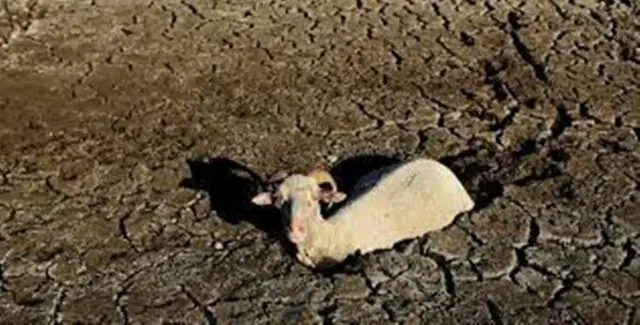The United Nations Organization (UN), decreed March 22nd as “World Water Day”, in order to create social awareness about the importance of preserving this vital liquid for all living beings, in addition to making socially visible the 2 billion people currently living without access to drinking water around the world.
In this sense, the UN affirms that when a territory extracts 25 percent or more of its renewable freshwater resources, it enters a cycle of “water stress” because the demand for water is higher than the amount available during a given period or when its use is restricted by its low quality.
Water stress is becoming more evident in various areas of the world due to the continuous “climate change” that causes the increase in temperatures and sea level, and the modification of the seasons that also supposes a variation in the quantity and frequency of rains, as well as a strengthening of the El Niño phenomenon. The result is a series of negative effects on ecosystems, changing their composition, preventing them from recovering and reducing their productivity.
All indications are that “global warming”, as well as other long-term climate change trends, will continue in the wake of unprecedented levels of heat-trapping greenhouse gases in the atmosphere. According to projections from the World Meteorological Organization (WMO), which indicates that by 2040, the problem will become widespread due to accelerated urbanization, population growth, climate change, in addition to the high industrial economic development that is exerting pressure on water systems.
Water Stress in the Americas
The American continent is not immune to this environmental abnormality, the phenomenon known as water stress is becoming more evident, paradoxically beginning to alert Latin America, one of the most mega-diverse reservoirs in the world.
The situation is currently being experienced by countries in the region such as Argentina, Brazil, Chile, Mexico and Peru, which have presented episodes of high shortages and face a discouraging outlook for 2040, according to Silvia Benítez, manager of Water Security in Latin America of the NGO environmentalist The Nature Conservancy.
Benítez explained that the panorama of the shortage of drinking water in some regions of the American continent shows that the situation tends to worsen in different Latin American countries as a result of climate change.

She commented that according to a study by the World Resources Institute, it is expected that by 2040 Peru and Chile will be part of the group of 33 countries that will face severe water stress, along with the US, South Africa, Australia, India and regions such as the Middle East, North Africa, among others.
Currently, climate change not only affects these countries in the American region, but also other locations on the continent are beginning to suffer the effects of water stress on a smaller scale, one of them is Costa Rica, which has faced episodes of increased temperatures in recent years, droughts and floods in some of its territories.
Costa Rica adapts to climate change
Although Costa Rica has a high availability of water and water stress is very low (around 2.4%) compared to other regions of Latin America, the demand for water consumption has increased in recent years due to growing social economic development.
Also due to the effects of climate change the temperaturas have reached up to 41°C in the North Pacific, and 36°C in the Central Valley, with a delay in the rainy season that could generate a situation of hydric stress in some localities of the country.
In summary, the evidence indicates that in the last 3 years the production of greenhouse gases has increased and, at the same time, the country’s temperatures have risen drastically and the frequency and intensity of rainfall has changed, which has produced droughts and floods in some territories.
Consequences are felt
Faced with this negative scenario of water stress that affects all the planet, Costa Rica is preparing and promoting a series of environmental measures adjusted to the agreements set forth by the UN, which seek to counter the effects of global warming, mainly preserving the country´s natural environments.
The Costa Rican Government, together with the National Legislative Assembly, has been evaluating and approving environmental projects in accordance with those of the UN convention in Paris 2021, allowing Costa Rica to ratify said environmental cooperation agreement, this being a first step towards compliance of the international commitments signed by the nation.
The consequences of climate change are already being experienced throughout the world and in Costa Rica, these are reflected in the lack of water supply, electricity cuts and the increase in diseases, among other aspects.
Among the environmental conservation measures proposed by Costa Rica are:
- Creating protected natural areas with extensive biodiversity.
- Developing different social and economic public policies in the communities affected by the effects of climate change.
- Promoting the population´s access to drinking water.
- Educating citizens on the environmental impacts of climate change in reference to water stress that has been increasing due to the negative intervention of man.
- Among other issues related to the preservation and conscious use of renewable water resources.


